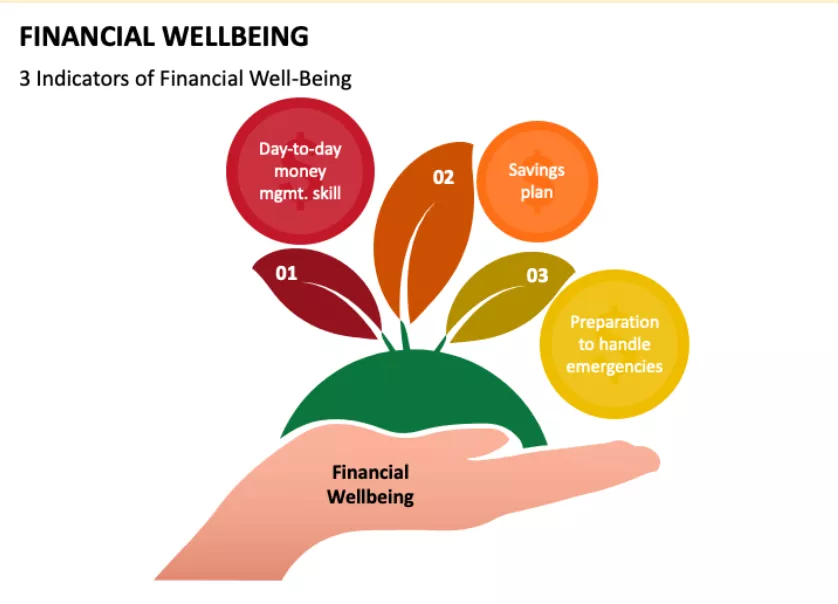Financial Wellness in Focus: Pluxee (Sodexo) Empowering Employee Financial Health

Amidst the current economic instability, a substantial 92% of workers experience financial strain, according to findings from the 2023 Wellness Barometer Survey. The convergence of elevated inflation rates and growing concerns about an impending recession emphasises the pressing requirement for financial preparedness. The survey exposes several elements: insufficient financial literacy, escalating debt levels, and a lack of emergency savings. This financial strain surpasses professional boundaries, impacting overall mental, social, and physical well-being.
This blog aims to explain the crucial role of financial wellness in the workplace and its broad impact. We explore ways to empower employees in identifying financial challenges, emphasising the essential link between financial health and overall well-being.
Key takeaways
- Financial stress affects mental, social, and physical well-being, emphasising the need for comprehensive financial wellness solutions.
- Prioritise financial well-being for enhanced productivity, reduced absenteeism, improved morale, and overall employee well-being.
- Employers act as responsible corporate citizens and strategic investors in fostering employee engagement and satisfaction through financial wellness initiatives.
- Implement financial education, tailored assistance programmes, incentivised savings, flexible compensation, and regular financial check-ins for a resilient workforce.
- Pluxee's innovative solutions, like meal passes and multi-benefit cards, go beyond traditional offerings, strategically enhancing financial health and overall satisfaction.
Understanding financial wellness
Financial wellness encompasses the overall health and stability of an individual's financial situation. It goes beyond just the presence of income and includes elements such as effective budgeting, saving habits, managing debt, and making informed financial decisions. Achieving financial wellness means having the knowledge and tools to navigate financial challenges successfully, resulting in reduced stress and an increased sense of financial security. It is a holistic approach that recognises the interconnectedness of various financial aspects in a person's life, aiming to enhance their overall financial health and well-being.

Suggested readings: How to improve employees’ quality of life through smart wellness programmes
The imperative role of financial wellness benefits
Financial wellness benefits extend workplace trends—they are crucial for empowering employees to manage their finances effectively. Shockingly, 36% of employees have missed work due to personal financial issues, emphasising the need for such programmes. These benefits act as personalised finance coaches, offering practical strategies for debt management, savings, and overall financial stability. With 56% of workers struggling to make financial headway despite full-time employment, employers can boost morale and productivity by addressing these challenges. Employees desire more resources to enhance their fiscal health, underscoring an apparent demand for comprehensive financial wellness initiatives.(1)
|
Did you know? Half of employees' financial health and mental health are interconnected. A significant 51% report that money stress has adversely affected their mental well-being. Surprisingly, financial stress is reported as a top pain point by 26% of individuals, rivaling concerns like low motivation at work (26%), burnout (26%), and anxiety (29%).(2,2) |
Transformative Impact of Financial Wellness
Here are the benefits of prioritising financial well-being for a prosperous and resilient workforce:
Enhanced productivity
Financially secure employees are less burdened by money-related stress, allowing them to focus more on their work. This heightened concentration often translates into increased productivity and efficiency in the workplace. Recent reports emphasise on the increasing momentum of employers prioritising employee financial health. Notably, enhanced productivity emerges as a key benefit, as financially secure employees focus more efficiently on their work.(3)
Reduced absenteeism
A notable 23% of employers have reported that implementing financial wellness programmes has helped reduce employee absenteeism. This underscores the effectiveness of such initiatives in addressing personal financial challenges and ensuring a more consistent and reliable workforce.(3)
Personalised financial guidance
Financial wellness benefits serve as personalised finance coaches, offering practical strategies for managing debt, cultivating savings, and promoting overall financial stability. This tailored support empowers employees to make informed decisions aligned with their unique financial goals.
Improved morale
Tackling financial challenges head-on, as recognised by 43% of employers reporting increased employee engagement/ morale, significantly improves overall workforce morale. Employees feel valued when their employers invest in their financial well-being. This promotes a positive work environment and strong employee-employer relationships.(3)
Read more: Essential financial wellbeing support
Boosted overall well-being
Financial wellness initiatives contribute to a holistic approach, recognising that financial health is intertwined with mental and emotional well-being. By providing resources to navigate financial hurdles, employers contribute to a healthier and happier workforce.
Enhancing employee satisfaction
Implementing comprehensive financial wellness initiatives plays a pivotal role in enhancing employee satisfaction. By addressing the financial well-being of the workforce, companies not only fulfil a critical need but also underscore their commitment to the overall welfare of their employees.
|
Did you know? |
The role of employers in empowering financial wellness
Employers recognize a heightened financial support responsibility, extending beyond traditional compensation. Proactive measures are crucial in addressing the pervasive issue of financial stress, impacting employees' productivity and overall well-being. Financial wellness assumes a dual role, showcasing responsible corporate citizenship and serving as a strategic investment. A focus on budgeting, saving, and financial goal-setting is critical to empower employees. By providing targeted resources, education, and support, employers enhance immediate financial well-being and contribute to the long-term success of their workforce and organization.

How to create financial wellness
Here are key strategies to promote financial wellness in the workplace:
Comprehensive financial education programmes
Implementing financial education programmes can empower employees with essential budgeting, saving, and goal-setting skills. Workshops, webinars, and resources tailored to various financial literacy levels contribute to a more informed and financially resilient workforce.
Tailored employee assistance programmes (EAPs)
Offering personalised support through Employee Assistance Programmes can address individual financial concerns. These programmes may include confidential counselling, financial planning services, and resources to help employees navigate specific challenges. This cultivates a supportive and empathetic workplace culture.
Incentivised savings programmes
Introducing savings initiatives with employer-matching contributions can motivate employees to build emergency funds and achieve financial goals. This enhances financial security and aligns employees' interests with the company's success, creating a mutually beneficial relationship.
Flexible compensation and benefits packages
Providing flexibility in compensation and benefits allows employees to customise their financial arrangements based on individual needs. This might include flexible work schedules, remote work opportunities, or benefits packages catering to diverse financial priorities, promoting a healthier work-life integration.
Regular financial check-ins
Establishing a routine for financial check-ins, either through one-on-one sessions or group discussions, enables employers to gauge the financial well-being of their workforce. This proactive approach allows for timely interventions and adjustments in support programmes, reinforcing the employer's commitment to their employees' financial health.
Related readings: How employee motivation drives success
Final thoughts
In our journey towards fostering financial well-being, we understand the importance of balancing professional and personal financial responsibilities. At Pluxee, our commitment extends beyond conventional norms as we introduce innovative employee benefit solutions. We strategically enhance employee financial health and the overall company culture through offerings like the meal pass, multi-benefits pass, and various cost-saving initiatives.
We acknowledge that financial well-being is not a luxury but a necessity, and its benefits to employees are manifold. Pluxee, with its forward-thinking benefits, places a premium on the financial wellness of our workforce. By prioritising employee satisfaction and financial health, we aim to create a workplace culture deeply rooted in inclusivity.
Elevate your workplace experience with Pluxee's advanced employee benefits – connect with us for a brighter financial future!
FQAs
1.What is financial wellness, and why is it crucial for employees?
Financial wellness involves the overall health and stability of an individual's financial situation, extending beyond income. It is vital for employees as it encompasses effective budgeting, saving habits, debt management, and informed financial decisions, reducing stress and enhancing security.
2.How do financial wellness benefits at Pluxee go beyond traditional offerings?
Pluxee's innovative solutions, like the multi-benefits platform, strategically enhance financial health and satisfaction. These offerings address diverse financial needs, enabling a comprehensive approach to employee well-being.
3.How do financial wellness initiatives contribute to a healthier and happier workforce?
Employers, as reported by 40%, find that financial wellness initiatives contribute to improved overall well-being by reducing stress related to finances, boosting morale, and cultivating a positive atmosphere. This holistic approach acknowledges the interconnectedness of financial health with mental and emotional well-being.
4.Why is financial well-being considered a necessity rather than a luxury?
The necessity of financial well-being arises from its direct influence on the mental, social, and physical health of employees. Companies like ours aim to create a workplace culture deeply rooted in inclusivity by prioritising financial wellness and acknowledging its manifold employee benefits.
5.How can employers create a financially resilient workforce?
Employers can promote financial wellness through comprehensive financial education programmes, tailored assistance programmes, savings initiatives, flexible compensation and benefits packages, and regular financial check-ins, contributing to a healthier work-life integration.






